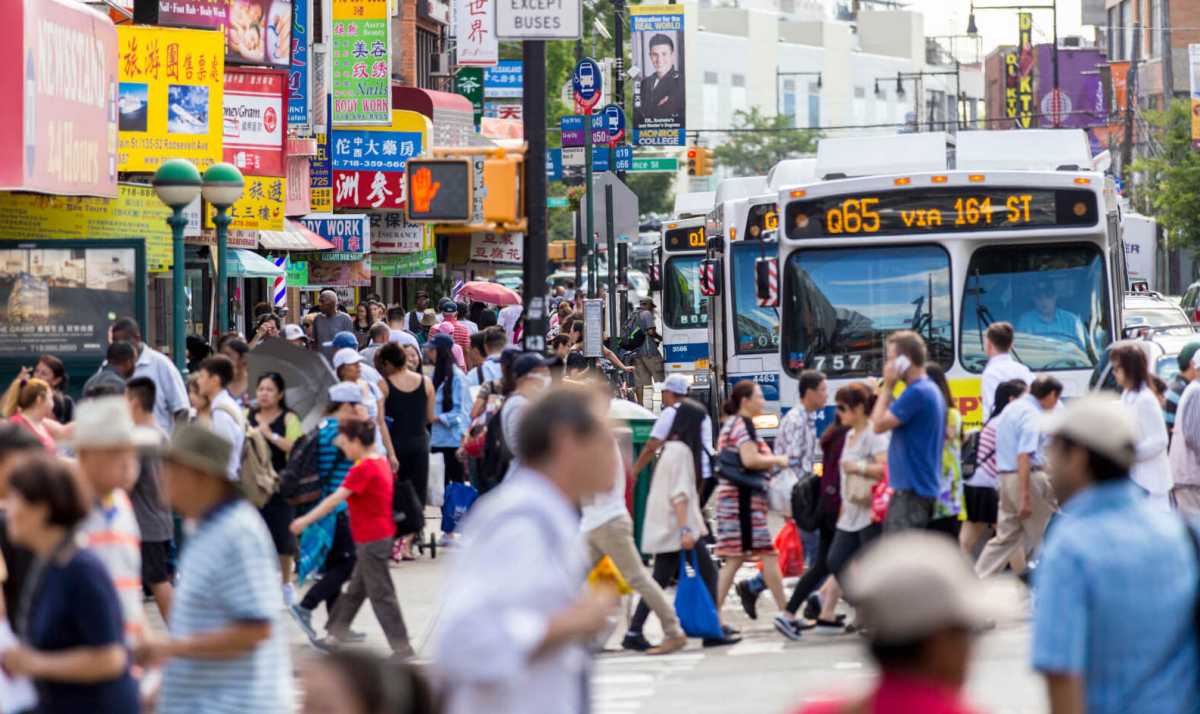A Queens congresswoman is introducing a new legislation to assist small business owners suffering economic harm from the coronavirus outbreak.
Congresswoman Grace Meng and her colleagues Rep. Nydia Velazquez (D-NY) and Rep. Judy Chu (D-CA) initiated the “Small Business Relief from Communicable Disease Induced Economic Hardship Act.”
Under the legislation, small businesses would be able to access Economic Injury Disaster Loans of up to $2 million to help meet financial obligations and operating expenses, which would otherwise have been met if it were not for the virus’ spread. The bill specifies that the loans would be interest free. Companies that are major employers could be potentially eligible for larger loans.
Concerns about the coronavirus have hit many small Asian-American owned businesses that are severely struggling due to misinformation and stigmatization, according to Meng.
The Flushing Chinese Business Association had previously reported a 30 percent decrease in sales and customers at Asian-owned restaurants and gift shops. Additionally, to educate the community and dispel rumors of coronavirus, local elected officials and community organizations held press conferences to reassure the public that New York City is highly prepared in the case of an outbreak.
“Small businesses are the backbone of our economy in Queens and throughout New York City,” Meng said. “They enhance our neighborhoods, bring investment and innovation to local communities, and provide jobs to area residents. Government must be a strong partner in helping small businesses succeed and we must not abandon them in their time of need. When small businesses succeed, America succeeds!”
Economists recently lowered the global forecasts for major economies from 2.6 percent to 2.4 percent. Much of the recent slowing of the economy is linked to the coronavirus, which has weakened demand in travel and tourism. Besides the decline in foot traffic for many retailers and restaurants, particularly those in Chinese communities, small firms have experienced challenges related to their supply chains.
Companies sourcing products and services from China have had delays or complete cancellations of orders, resulting in lower profits for the company. Besides these challenges, small firms must start the process of preparing their companies for the potential to have employees become infected and remain home or telework. In many instances, a small employer may be unable to absorb the additional workforce reductions without a coinciding loss in productivity.
In Chu’s district, some Asian-owned businesses are reporting a 50 percent drop in customers, she said.
“In New York City, before there was even a single case of COVID-19, some restaurants saw as much as an 80 percent decline in customers. We have even seen instances of illegal, fraudulent letters that baselessly urge people to avoid Asian-owned businesses,” Chu said. “These are serious losses that can have long-lasting impacts on our local economies.”
Velazquez added, “That properly preparing for the impact of the coronavirus requires a multi-front strategy, which includes being ready to address the very real economic fallout we may see. This legislation would be a good first step to help our small firms in New York and around the nation who sustain economic injury from COVID-19.”




































